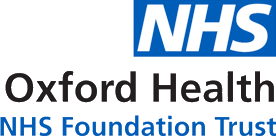About Stroke
Causes of a stroke
- ischaemic – where the blood supply is reduced or stopped because of a blood clot, accounting for 85% of all cases
- haemorrhagic – where a weakened blood vessel supplying the brain bursts
There’s also a related condition known as a transient ischaemic attack (TIA), where the blood supply to the brain is temporarily interrupted.
This causes what’s known as a mini-stroke, often lasting between a few minutes and several hours.
TIAs should be treated urgently, as they’re often a warning sign you’re at risk of having a full stroke in the near future. Seek medical advice as soon as possible, even if your symptoms resolve.
Certain conditions increase the risk of having a stroke, including:
Treating a stroke
Treatment depends on the type of stroke you have, including which part of the brain was affected and what caused it.
Strokes are usually treated with medication. This includes medicines to prevent and dissolve blood clots, reduce blood pressure and reduce cholesterol levels.
In some cases, procedures may be required to remove blood clots. Surgery may also be required to treat brain swelling and reduce the risk of further bleeding in cases of haemorrhagic strokes.
Read more about diagnosing strokes and treating strokes.
Page last reviewed: 15 March, 2019
